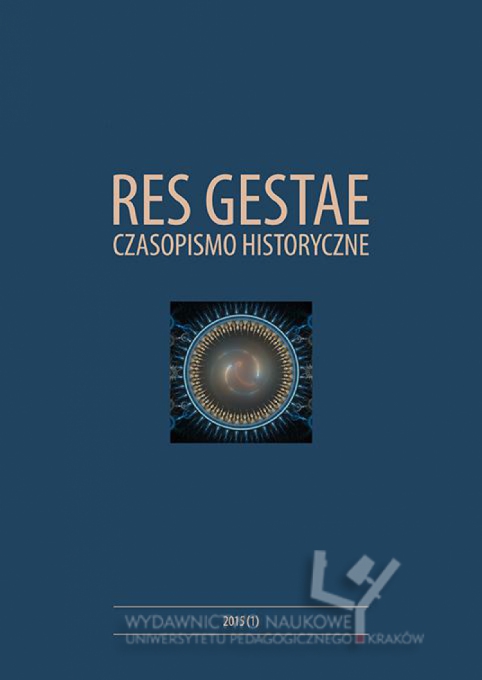
We kindly inform you that, as long as the subject affiliation of our 300.000+ articles is in progress, you might get unsufficient or no results on your third level or second level search. In this case, please broaden your search criteria.

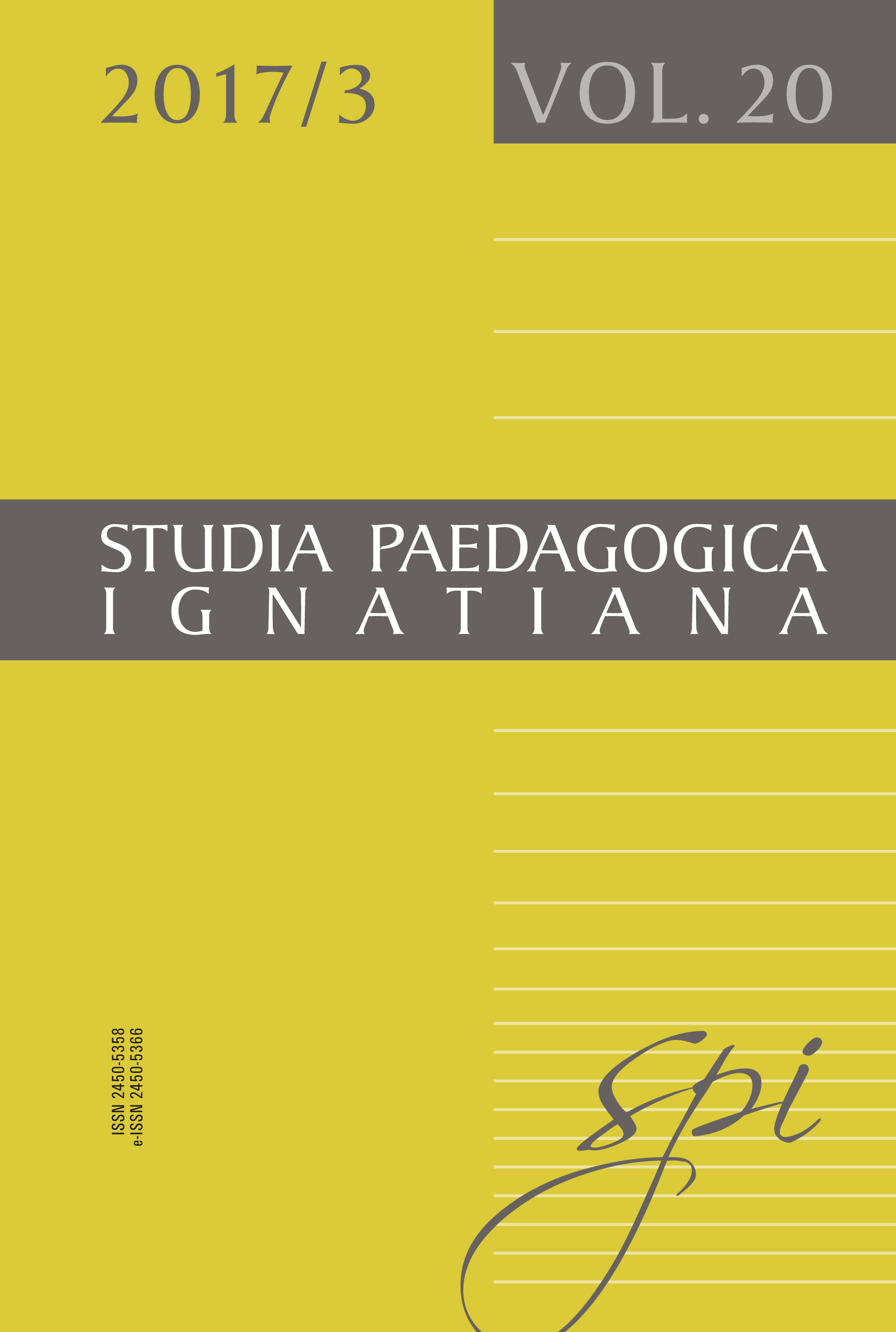
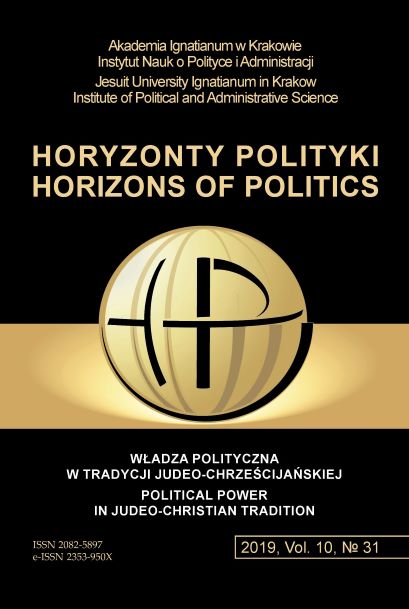
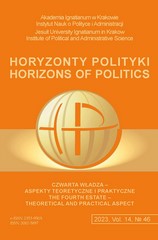
RESEARCH OBJECTIVE: The scientific aim of the article is to present the position of the Polish Bishops’ Conference after the Russian invasion of Ukraine, which began on February 24, 2022, on matters relating to: the general geopolitical situation in the context of the war in Ukraine in 2022, including the resulting migration and refugee crisis on the external border European Union; the protection of these borders; the assessment of the activities of the Prime Minister Morawiecki’s government in the field of foreign policy and the assessment of the position of the Holy See and Pope Francis on Russia’s invasion of Ukraine. THE RESEARCH PROBLEM AND METHODS: The research problem focuses on the issue of the involvement of Polish bishops in the processes of political communication in the context of the Russian-Ukrainian war. The research uses the media studies perspective by Martin Reisigl. The study uses the qualitative methods: discourse analysis method, and, in addition, the method of decision analysis. THE PROCESS OF ARGUMENTATION: In the first part of the article, the conceptual framework used was explained. The second part of the publication presents methodological issues. The third part of the article presents the position of the Polish Bishops’ Conference on the analyzed issues. The fourth part of the article consists of conclusions. RESEARCH RESULTS: The Polish Bishops’ Conference remains an active participant in political communication processes during Russia’s invasion of Ukraine. CONCLUSIONS, INNOVATIONS, AND RECOMMENDATIONS: The conducted analysis proved the political involvement of the Polish Episcopate Conference matters related to the war in Ukraine in 2022. The bishops took a clear position in the context of Russia’s aggression in Ukraine: they identified the aggressor, postulated the need to help refugees, and appreciated the attitude and message of Pope Francis in the context of the military crisis.
More...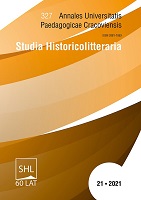
A happy coincidence made Quo vadis happen. The novel from Nero's time gained enormous readership and became a pop culture phenomenon on the Apennine Peninsula. The Italian translator Federigo Verdinois accidentally came across a Russian translation of Henryk Sienkiewicz's work at the end of the 19th century. He had never heard of the Polish author before, but, delighted with the story about the suffering of the first Christians in Rome, he translated the novel and then worked for a long time to have it published in the Neapolitan press. Ultimately, the readers of "Corrierre di Napoli" were the first to read Quo Vadis in installments in 1898. Readers' reactions were so enthusiastic that less than two years later a book edition was published by the publishing house Baldini, Castoldi & C. Thanks to this translation, Verdinois gained a reputation , as well as respect in Italian intellectual circles. He used Sienkiewicz's works, which brought him happiness, several times, translating With Fire and Sword, The Połaniecki Family and Without Dogma.
More...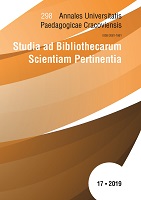
The 80th anniversary of the outbreak of World War II became an opportunity to organize the first interdisciplinary scientific conference in Poznań with a very broad title "War and Books". The conference topic, very simple in its structure, turned out to be extremely relevant and relevant, and Poznań was a perfect place to organize it. In Poznań there are institutions important for Polish science and culture, with a long tradition, such as those existing since the 19th century: the Raczyński Library, founded in 1829, the oldest existing public library in Poland, and the Kórnik Library, established in 1826 (from 1953) of the Polish Academy of Sciences, as well as the University Library in Poznań, celebrating its centenary this year, and one of the oldest Polish scientific societies, operating continuously since 1857, which is the Poznań Society of Friends of Sciences. The organizers also included, due to the topic of the conference, the Polish History Museum and the Polish Blue Shield Committee, established in 2002, which is an organization aimed at protecting cultural property threatened during armed conflicts. All these institutions jointly participated in the preparations of this very successful scientific event, which connected and integrated the scientific and library communities of Poznań. The conference partners were also the Association of Polish Librarians and the National Institute of Museums and Collections Protection. The conference was held under the honorary patronage of the President of the Republic of Poland, Andrzej Duda, whose letter to the conference organizers was read during its opening ceremony by one of the employees of the Chancellery of the President. The authorities of Poznań also held patronage over this important scientific event and contributed to the financing of this conference.
More...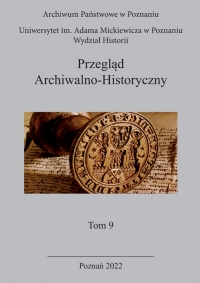
Report on Conference "Miasta na ziemi wschowskiej i pograniczu wielkopolsko-śląskim",
More...
Report on Conference "Landes- und Regionalgeschichte versus Nationalgeschichte? Eine Standortbestimmung" held in Frankfurt from 22nd–24th of September 2022.
More...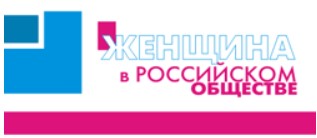
The results of a scientific conference with international participation “Women of Russia: comprehending the past and creating the present (In line with the directions of the National Strategy of Action for Women for 2023—2030)” (Ivanovo — Plyos, 12—13 May 2023) are analyzed. The purpose of the conference is to discuss the problems of historical experience and the current state of the social status of women in Russian society.
More...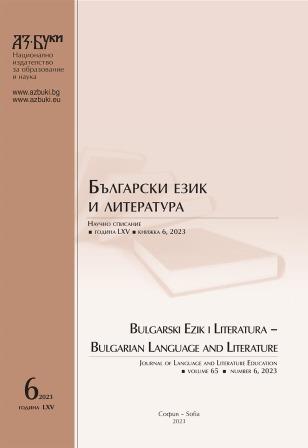
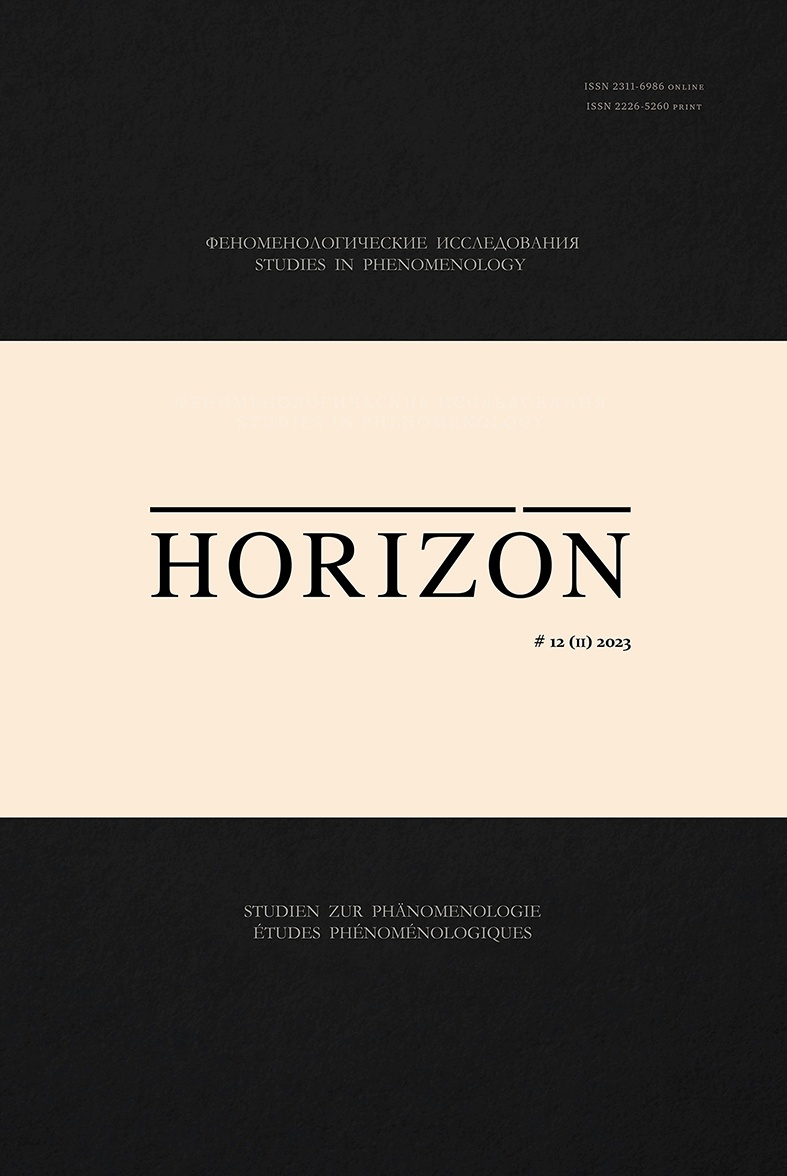
This article presents a review of papers of the international scientific seminar “Transcendental Turn in Modern Philosophy — 8: Metaphysics, epistemology, transcendental cognitive science and artificial intelligence,” which was held on April 20–22, 2023 in Moscow. The topics reviewed were the following: “Transcendental Philosophy: Ontology, Metaphysics of Experience or Epistemology,” “Transcendentalism, Cognitive Science and Artificial Intelligence,” “Reception and Development of Transcendental(Phenomenological) Approach in Modern Philosophy,” as well as “Transcendental Phenomenology: Ontology and/or Gnoseology”. The author analyzes the presentations of the participants, grouping them around the following thematic and problematic nodes: the transcendental foundations of cognitive sciences, the understanding and status of the transcendental unity of apperception, the relationship between gnoseology and ontology in phenomenological research, receptivity and construction informing the subject of knowledge, etc. This approach makes it possible to identify different, sometimes opposing positions of the participants on the same question and to outline ways to overcome the contradictions.
More...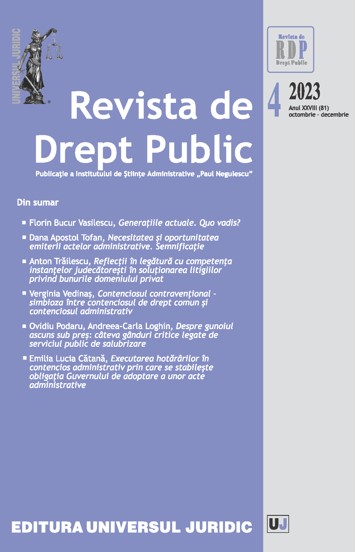
În ziua de 8 decembrie 2023, s-au desfășurat, la Oradea, lucrările ediției a IV-a a Conferinței naționale de Contencios administrativ, organizată de Facultatea de Drept a Universității din Oradea.
More...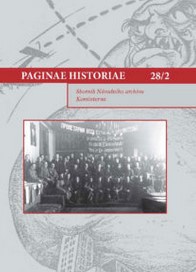
On September 22–27, 1947, the conference of the representatives of the Commu-nist and Workers’ Parties took place in Szklarska Poręba town in Poland and result-ed in creating of the Cominform. This measure was intended by the Soviet leadership to ensure a higher degree of control over its satellite states and a better coordination in the starting Cold War. Apart from reaching an agreement on the common course of action, the representatives informed each other on the situation in their respective countries and parties. The general secretary of the Communist Party of Czechoslovakia Rudolf Slánský appreciated in his report especially economic success achieved after nationalisation of some segments of Czechoslovak industry the end of WWII. The paper presents the report text in an edited version supplemented with explanatory and complementary footnotes.
More...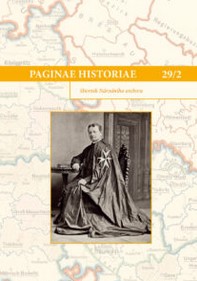
Opatření spojená s koronavirem znatelně zasáhla i do vědeckého života. Příkladem může být i konference „Věk konverzí“, pořádaná Filozofickou fakultou Univerzity Palackého v Olomouci, která se uskutečnila s ročním odkladem formou on-line konference ve dnech 20. a 21. května 2021.
More...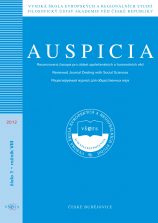
Report on the conference “Sustainable Development VII. - 30 Years since the Single European Act or Europe Four Freedoms” held in České Budějovice on 31.3.-1.4.2016.
More...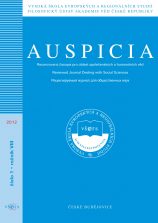
Report on Conference held at Diplomat Hotel in Prague from 23rd to 24th of November 2009.
More...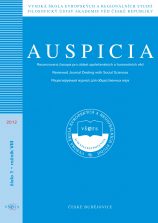
Report on conference „Pět let členství ČR v EU: bilance a perspektivy, trendy a vize“, held at České Budějovice on April 2, 2009.
More...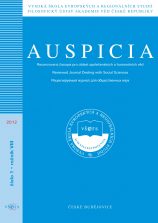
Report on Conference “Pražské jaro 1968: Literatura - film – media”, held in Prague from 20th to 22nd of May 2008.
More...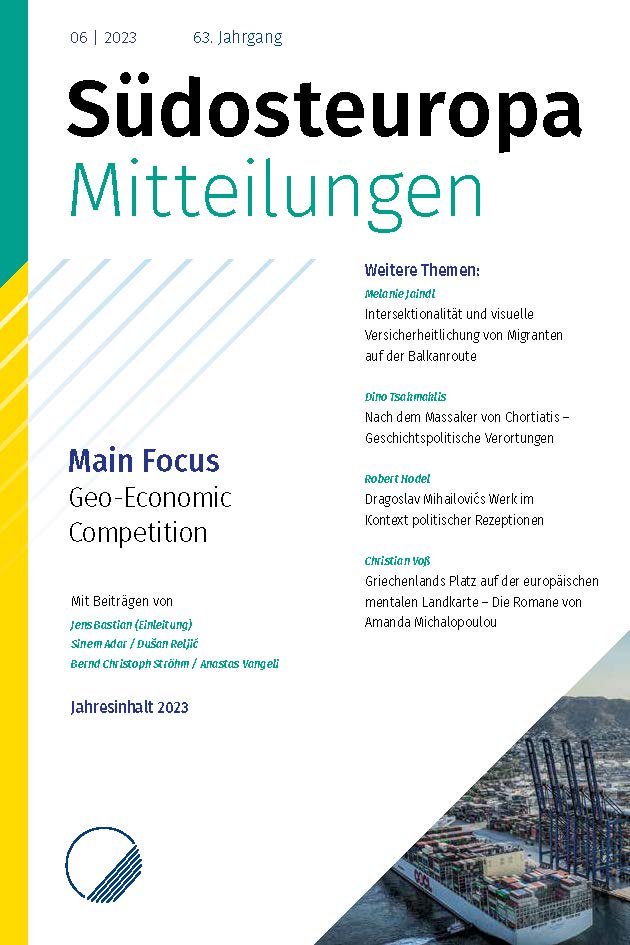
61st International Academic Week of the Southeast Europe Association Wind of Change? Academic and Artistic Perspectives on Experiences of Change in Southeast Europe Veranstaltende: Südosteuropa-Gesellschaft / Akademie für Politische Bildung Tutzing; unterstützt durch die Gustav Mahler Privatuniversität für Musik, Klagenfurt. Tutzing, 2. –6. Oktober 2023 Internationale Fachtagung Crises and Transformations Actors, Politics and Strategies in Central and Southeastern Europe after 2008 Veranstaltende: Evangelische Hochschule Berlin, Hans-Böckler-Stiftung, Südosteuropa-Gesellschaft Berlin, 21./22. September 2023 Nachwuchs-Fachgespräch Im Gespräch mit Dominic Fritz, Bürgermeister von Timişoara/Temeswar Veranstalterin: Südosteuropa-Gesellschaft (SOG) Online, 7. November 2023
More...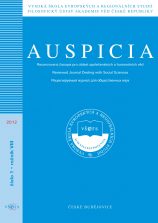
Report on Conference „O změnách politické kultury” held at České Budějovice on 21.4.2005.
More...